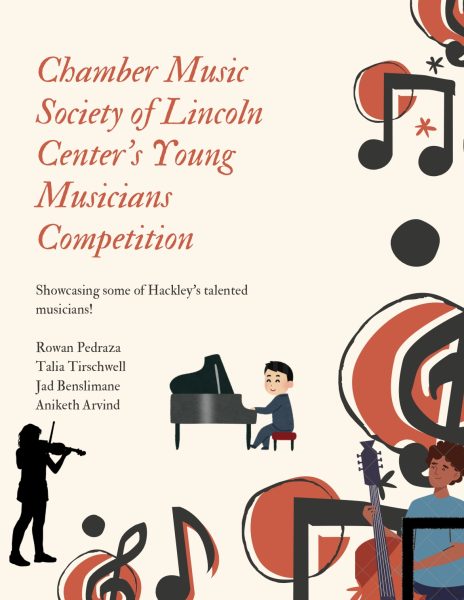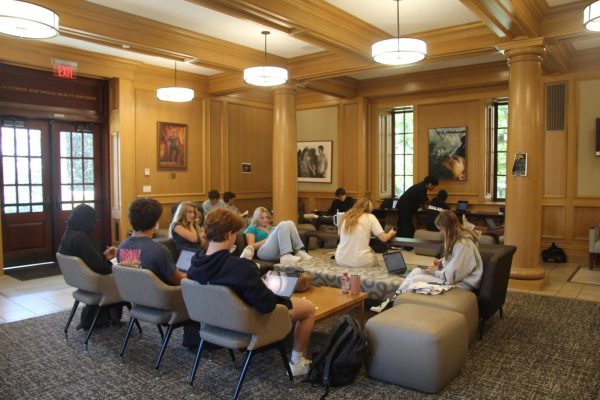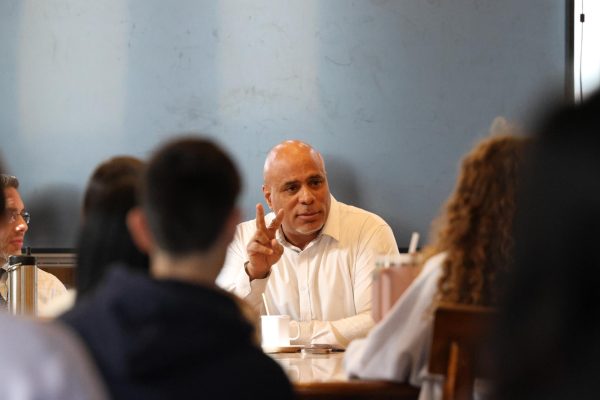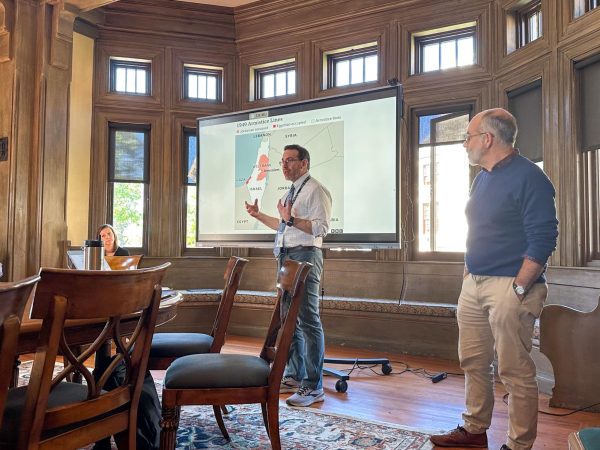Community members attend Women’s Marches to peacefully promote human rights
Credit: Roya Wolfe
Co-president of Dux Femina Facti, senior Lila Wolfe joins protesters in a chant at the Women’s March on Washington following President Trump’s inauguration. The march was organized as a way for citizens to express their desires for equality.
February 10, 2017
“Women’s rights are human rights! Women’s rights are human rights!” The chants grew louder across the sea of pink hats on the National Mall in Washington, D.C. The voices of people all over the globe were heard on January 21, 2017 when the Women’s March on Washington took the world by storm. Both women and men throughout America marched for equality and women’s rights. Hackley community members advocated for a variety of issues at marches in Washington, D.C., New York City, Stamford, CT and even Orlando, FL.
The Women’s March on Washington was massive, with about half a million people flooding through the city’s metro stations and streets. Marchers came from all over the country to Washington, D.C.; sister marches were staged in cities around the country and the world. According to the Women’s March official website, a total of 673 marches took place globally.
In Washington, D.C., the excitement was palpable in the air as signs bobbed up and down. People began gathering at 10:00 a.m., in preparation for the march that would soon start at 1:15 p.m. Senior Amanda Patterson was among the marchers there, and said, “my favorite part about the march was the general feeling of happiness and kindness among all the women.” Hackley alumnus Elizabeth Bendick ’08 also marched in the nation’s capital, noting, “the Women’s March gave me so much more than an outlet; it restored my hope. The hope that difficult conversations about diversity can happen, hope that women can feel empowered to be in control of their own bodies, and hope that despite differences, people can come together in a peaceful display of democracy.”
Upper School Spanish teacher Jessica Spates attended the march with her husband, Hackley athletic trainer Doug Sawyer. “I think female voices need to be heard, especially since [Trump] ran against a woman and because he’s been so depreciative of women,” she commented.
Several Hackley community members also joined the march in New York City. According to senior Amanda Stern, “It was all out of love. I think that at times it was more anti-Trump and less women for equality than I’d hoped it would be. I think it brought to light an important issue that some people think isn’t there anymore, when it is.”
In addition to upperclassmen who attended, freshman James Sexton-Holtmeier was at the march with his family members. “Nobody could move due to the large unexpected turnout, which in itself was amazing,” James said. “The overall highlight for me would have to be the signs everyone came up with. I thought they were creative and hilarious,” he added.
While multiple members of the Hackley community supported and participated in the marches, some shared a different perspective, such as junior Chiara Calov. “Our new president just got inaugurated and we have not yet given him a chance to work for us, the people of America. We are trying to oppose him, before he has shown us his capabilities and possible strides he will make for our nation,” she stated.
Co-president of Dux Femina Facti, Izzy Ampil, attended the Women’s March in Stamford; it drew a much smaller crowd, with about 5,000 people present. “The organizers of the event brought in representatives from Planned Parenthood and the NAACP, members of Native American, Muslim, and gay communities, and a host of local politicians who addressed inclusivity of ability and background. The women’s marches received criticism about their lack of intersectionality, particularly early in the process, and I was impressed by this march’s attention to these issues,” she said.
Senior Aurora Straus attended the Women’s March in Orlando, Florida. “There were some protesters there yelling at the marchers, but it was so powerful being a part of something larger that nobody really cared about them,” Aurora said. She emphasized that representing in swing states is just as important as going to places like Washington, D.C. and New York City.

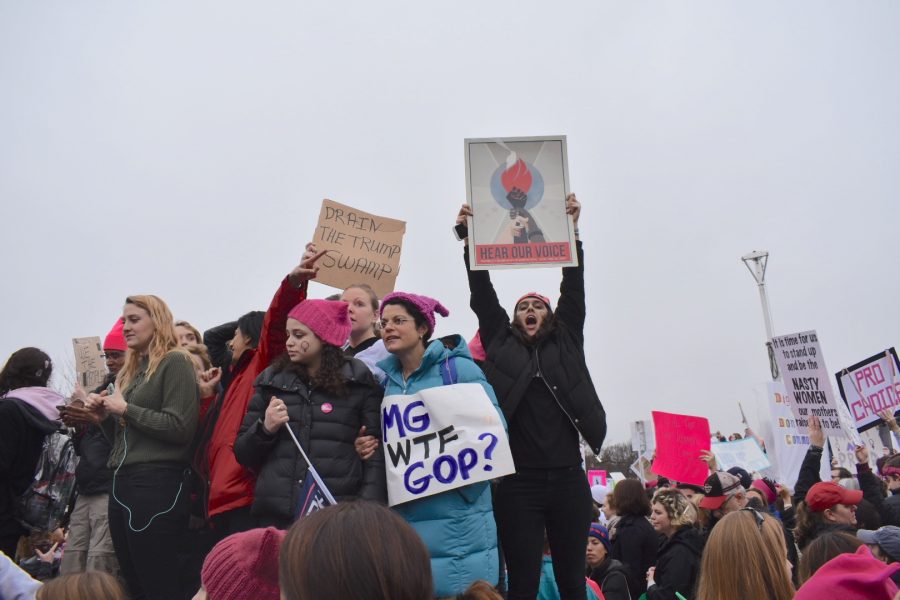
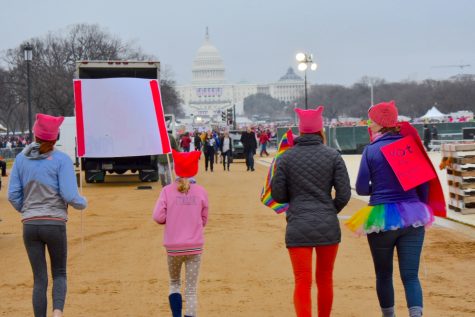
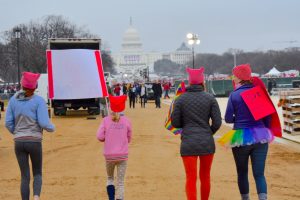

![Although the affect of COVID-19 has been on a decline with less cases and deaths allowing most of us to remain mask free, people on the Hilltop are still choosing to mask up. Personal health concerns as well as helping an elderly neighbor are reasons as to why middle school science teacher Emma Olsen still wears a mask years after the COVID-19 pandemic began. Since I am helping take care of him, you know I go over to work with his dogs, that kind of thing; I dont want to bring [the virus] home to him, Ms. Olsen said.](https://hsdial.org/wp-content/uploads/2024/03/IMG_1713-450x600.jpg)
